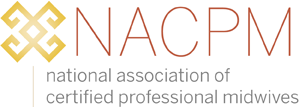Zika: What Midwives Need to Know
September 26, 2016
Over the past couple of years, more than one million people, mostly in Latin America, have been infected with the Zika virus. Now that the Zika virus has spread to South Florida, new infections in Florida are considered “locally grown” and came even after aggressive mosquito control efforts. Although numbers are still small, cases have been confirmed in 48 of our states. This disease has become a worry for our childbearing population and all those who care for them. Midwifery clients and their sexual partners who live in or travel to areas where the Zika virus is found are at risk for this disease which can cause severe birth defects. Recently, the CDC warned pregnant women and their partners not to travel to a Miami neighborhood where 14 cases have been diagnosed. This webinar features national experts, including from the Centers for Disease Control and Prevention (CDC) and midwives working in Florida where the virus first appeared in the U.S. Learn what guidance is now available to providers and how to access resources for yourself and your clients.
Margaret Lampe, RN, MPH, a subject matter expert currently supporting the Centers for Disease Control and Prevention’s (CDC) 2016 Emergency Response to the Zika Virus within the Pregnancy and Birth Defects Task Force, was the keynote speaker for this webinar. She address ed clinical assessment, screening, precautions during delivery, and referrals and resources for clinicians. She also shared data that the CDC has been collecting about the spread of the Zika virus in the U.S.
PDF of Margaret Lampe’s Zika webinar presentation slides
Dr. Rita Driggers, MD, is Associate Professor in Gynecology and Obstetrics at the Johns Hopkins University School of Medicine in Baltimore. Dr. Driggers addressed the challenges and impact women face with a potential infection during pregnancy, when the woman and her fetus are most vulnerable, long term effects of the virus on women and infants, other developmental disorders, and decisions women face when contracting the Zika virus when pregnant.
PDF of Dr. Driggers’ Zika webinar presentation slides
Katie Pahner, Senior Vice President of Thorn Run Partners, NACPM’s federal health policy consultants, has extensive experience working as a senior health policy analyst and crafting and implementing federal health care policy. She presented the issues surrounding Congressional funding for addressing the spread of the Zika virus and the impact on clinicians and patients.
PDF of Katie Pahner’s Zika webinar presentation slides
Barbara D. Blot, RN, LM, CPM, BSN is an NACPM board member providing midwifery services to South Florida’s diverse birthing population. Barbara shared her experience in developing a protocol for her practice in Miami, “ground zero” for the Zika virus in the U.S., in conjunction with her county health officials.
Judy Kaplan, CNM, ARNP, is the Director of Risk Assessment at the Miami Maternity (Birth) Center, which is owned and run by CPMs, and is a well-known resource for CPMs in South Florida. With a practice centered in Miami, Judy shared how she has stepped up to become a resource about the Zika virus for her patients, co-workers and the general population.
Justine Clegg, MS, LM, CPM, CLC, of Florida, shared with us from the perspective of a midwifery educator about the information she has added to her Embryology course teratogens module in light of the rise of the Zika virus in the U.S.
PDF of Justine Clegg’s Zika webinar presentation slides
Maggie Wardlaw, MSN, CNM, is passionate about providing the best care for women throughout their lifetime and has enjoyed catching babies in birth centers and hospitals since 1998. Maggie also practices in Miami and presented about her experience supporting patients at risk for the Zika virus.
